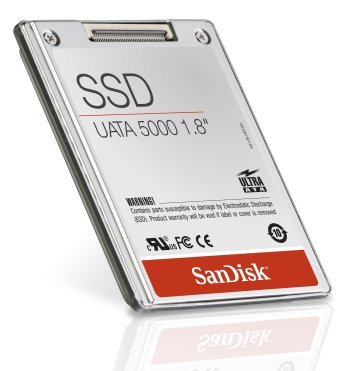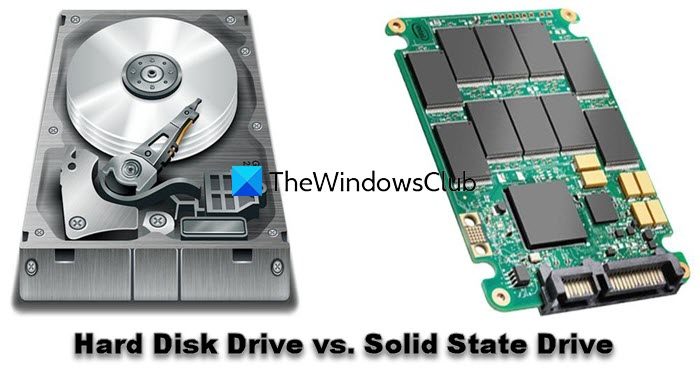Maybe you have heard a lot about Solid-State Drives (SSD) and want to know what they are and how they differ from Hard Disk Drives. If so then this post is especially for you.
What is a Solid State Drive

A Solid-State Drive (SSD) is an array of flash memory modules similar to a flash drive. However, an SSD is totally different from RAM. Unlike RAM, an SSD permanently stores and remembers data even when the system is shut down. It is made up of flash memory rather than volatile memory.
Solid State Drive vs. Hard Disk Drive

The main benefit of SSDs is that they do not contain any moving parts, which makes them sturdy enough to absorb knocks, falls, or bumps without affecting your data. On the other hand, an HDD contains fragile parts, thus rendering it sensitive even to the smallest of knocks or falls, which may, in turn, lead to the loss of your precious data.
Solid-state Drives have much faster startup times than traditional hard disk drives. They help make your computer run more efficiently and amazingly fast, with the seductive feature of allowing users to access their data or store it in comparatively less time. They also have much faster read-write speeds.
Do you hate the idea of inducting an extra noisy fan just to keep the system cool? Adopt an SSD, for it consumes much less power than an HDD. Less power means it does not generate much heat and does the job quietly and effectively, extending your battery’s life.
Thick is ‘out’ and Thin is ‘in’, be it modeling, fashion or technology. SSDs have a size advantage over their counterparts HDD with the former being comparatively less in size than the latter. Who would want a bulky hard disk drive when a few varieties of solid state drives can be installed, even on ultra-thin and extremely cheap laptops/netbooks? It improves the mobility factor by leaps and bounds and in the near future, we can expect even smaller SSDs with larger storage capacity.
Read: What is SATA or NVMe SSD?
Users complain about the high cost of SSDs which seemingly makes them unaffordable by the majority of system users, but with time, this is set to change. Its increasing demand and availability of cheap deals all around will prompt every user to think if he needs to stick around with a Hard Disk Drive or switch over to a Solid State Drive.
In short:
- SSD offers better speeds when accessing data
- SSD drives are quieter
- SSD hard drives require no cooling
- SSD is more expensive
- SSD drives have no mechanical parts such as write head and are therefore less prone to failure
- SSD consumes less power.
You may also want to read about Hybrid Drives and check out this comparison between Hybrid Drive vs SSD vs HDD.
Is a Solid State Drive better than a hard drive?
A Solid State Drive (SSD) is generally better than a hard drive (HDD) because it is faster, more durable, lighter, and consumes less energy, though HDDs offer more storage for a lower price. Choose SSDs for performance and HDDs for large, budget-friendly storage.
What is the biggest drawback to SSD drives?
The biggest drawback of SSD drives is their cost. They are more expensive per gigabyte than traditional HDDs. Additionally, SSDs have limited write endurance, meaning they can only be written a finite number of times before they wear out, which can impact their lifespan.
What are the disadvantages of a HDD?
The disadvantages of an HDD include slower data retrieval for large files, higher power consumption, significant heat production due to moving parts, and lower durability, particularly in portable devices.
Also read:
Thanks.
SSD are still very costly to buy.
Amazing Article….
SSD’s will rock in the near future………
The prices are dropping so I’m probably getting one this year.
What was missed is that like a Hard Drive – a SSD degrades over time. There is a finite amount of times you can write to each sector of space.
You have to take “care” and not use deframenters too often or you will remove the life out of the SSD. The best solution is to use software that prevents the fragmentation being written to the SSD, not try and fix the system afterwards. Remember MS OSs do not natively have this feature at present.
Actually, Nigel, it was touched upon at the end of the video, stating that SSD’s get over 2 million hours of active use. Much more than any standard HDD.
Can’t read to a SSD as many times, right? What happens after serveral years of daily use if read and write lot to the SSD?
Can’t read to a SSD as many times, right? What happens after serveral years of daily use if read and write lot to the SSD?